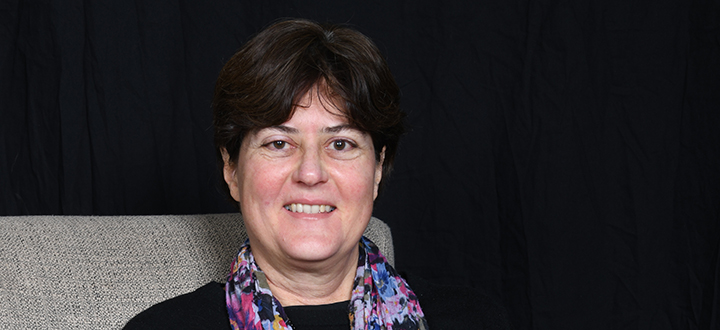Research
Unisan earns B NRF rating for research on improving AI robustness and reliability
Artificial intelligence (AI) has become mainstream with society, business and industry increasingly relying on its features to perform everyday tasks – at home and at work. In her research, Unisa’s Prof Katherine Malan focused on improving the robustness and reliability of AI systems by helping to develop AI technology that can be trusted to perform well when solving new tasks for society.

Prof Katherine Malan
Her research falls into the broad area of Artificial Intelligence, particularly the algorithms and models underlying intelligent systems. "I am focused on the fundamentals of optimisation and machine learning – understanding why AI methods behave the way they do, why they usually work so well, but also why they sometimes fail at a given task," said Malan.
Malan’s AI interest started when she learnt about natural computing – where algorithms and models for intelligent systems are inspired by natural phenomena. "I became fascinated by technologies such as neural networks (inspired by the human brain), evolutionary computation (inspired by biological evolution) and swarm intelligence (inspired by the swarming behaviour of animals) and I wanted to understand more about the apparent ‘magic’ way in which these technologies can solve complex problems," she reflected.
Involved in different projects with collaborators from France, Australia and the United Kingdom, her work broadly covers techniques for analysing complex search spaces in AI systems. Her other projects involve master's and doctoral students she is supervising; many of them are working on cutting-edge solutions in the domain of automated AI development. This involves developing techniques for automatically detecting the best algorithm/model to solve a problem, based on the features of the problem.
Internationally acclaimed researcher
Malan has been an academic for almost 30 years. She worked at different South African universities and joined Unisa’s Department of Decision Sciences in 2016. While she loves teaching, Malan has lately been more focused on research and postgraduate supervision. She is the editor-in-chief of the South African Computer Journal (https://sacj.org.za/) and associate editor of Engineering Applications of Artificial Intelligence (https://www.sciencedirect.com/journal/engineering-applications-of-artificial-intelligence). In addition, she has served as a reviewer for over 20 Web of Science journals.
One of her main research highlights is receiving the National Research Foundation (NRF) rating – a valuable tool for benchmarking the quality of South Africa’s researchers against the best in the world. In 2020 she received a C rating and now (in 2025) she has been re-rated with a B, which recognises her as an internationally acclaimed researcher.
"The process of applying for rating is a worthwhile experience. It is an opportunity to reflect on what you have achieved as a researcher and where you see yourself developing in the future. It is a rare opportunity to receive feedback from international scholars on how they view the quality and impact of your research and your standing in the field. I am thrilled with the B rating, because it is confirmation that international scholars value my research," she said.
Malan likes to work closely with emerging researchers, mostly through co-supervision of postgraduate students, to share her knowledge and experience. Unisa is very supportive of academics in terms of skills development and mentorship, and as a professor she forms part of the infrastructure available to emerging researchers. As editor of the South African Computer Journal, she also performs a developmental role, helping authors to improve their skills in publishing research.
Tips for becoming NRF rated
With considerable international recognition for the quality and impact of her recent research outputs, Malan says when you are rated, you become eligible to apply for grants that are only available to rated researchers. "There is also a status attached to being rated that is beneficial. Academics know what it takes to become rated and so it feels like there is less pressure to prove that you are a good researcher when you have a rating," she said.
For those wanting to apply for an NRF rating, Malan advised that a researcher should aim to become well known as an expert in a particular research topic. She also gave the following tips:
- Identify a niche area that you can concentrate on and try to attract postgraduate students to do research in your niche area.
- Rather publish fewer papers in a focused area than many papers on widely different topics.
- Work on building a network of researchers who are aware of your research – attend international conferences and meet researchers who share your interests and with whom you could potentially collaborate in the future.
* By Mpho Moloele, PR and Communications, Department of Research, Innovation and Commercialisation
Publish date: 2025/03/11

 Unisa co-hosts G20 community outreach in the Eastern Cape
Unisa co-hosts G20 community outreach in the Eastern Cape
 Unisans gain membership of prestigious science academies
Unisans gain membership of prestigious science academies
 Advocating for disability transformation through servant leadership
Advocating for disability transformation through servant leadership
 Unisa Press continues to illuminate the publishing space
Unisa Press continues to illuminate the publishing space